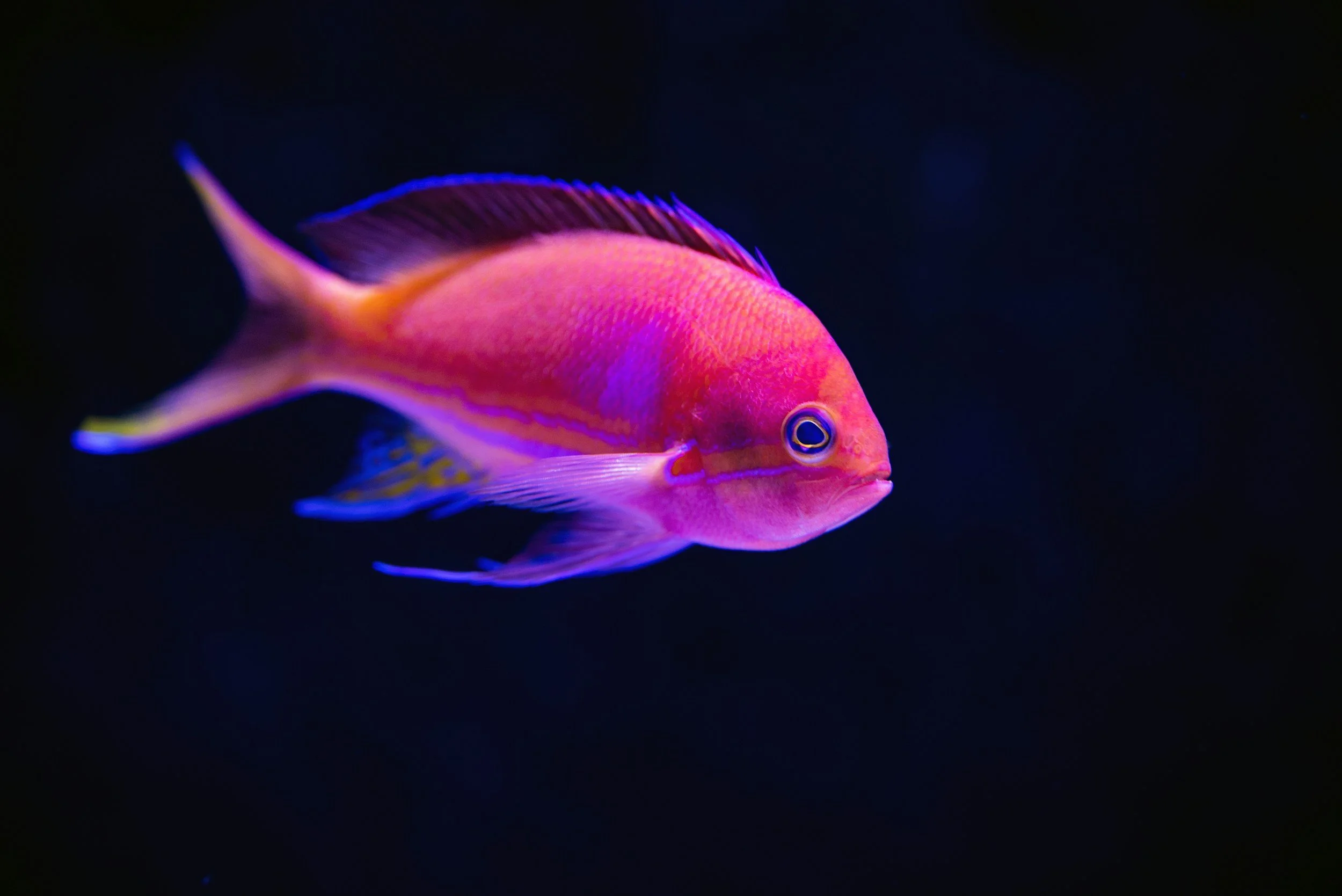LifeLine Frozen Fish Food: the Gold Standard for Aquatic Excellence
As someone who has dedicated over two decades to aquatic nutrition and fish husbandry, I've witnessed countless products promise miraculous results for our finned companions. However, few deliver on their claims like LifeLine Frozen Fish Food. From my professional perspective, this isn't just another product on the market—it's a game-changing approach to fish nutrition that addresses fundamental flaws in conventional feeding practices.
The Science Behind Superior Nutrition
Having worked extensively in marine biology and aquaculture, I can confidently state that most commercial fish foods fail to provide optimal nutrition for fish. Standard flake and pellet diets undergo extensive processing that strips away essential nutrients, leaving fish with a diet equivalent to eating cardboard. This nutritional deficiency manifests in ways that many aquarists may not immediately recognize: dulled coloration, weakened immune responses, and stunted growth.
LifeLine Frozen Fish Food revolutionizes this paradigm through flash-freezing technology that preserves the molecular integrity of nutrients. This process locks in vital proteins, amino acids, and fatty acids at their peak nutritional value—something impossible to achieve with traditional processing methods. The result is food that closely mimics what fish would naturally consume in their habitat.
Replicating Nature's Perfect Diet
In the wild, tropical and ornamental fish consume a diverse array of live prey: zooplankton, small crustaceans, insect larvae, and various microorganisms. Each provides specific nutritional components essential for optimal health. After years of field research and laboratory analysis, we have come to understand that successfully replicating this natural diet is key to unlocking a fish's full potential.
LifeLine's formulation includes carefully selected protein sources that match the natural prey preferences of different species. For carnivorous cichlids, the protein composition mimics their preference for small fish and invertebrates. For omnivorous tetras, the blend includes both animal proteins and plant-based nutrients they would naturally encounter in their environment.
This species-specific approach sets LifeLine apart from one-size-fits-all alternatives. When you feed your fish food that aligns with their evolutionary dietary needs, you witness transformations that seem almost miraculous to those accustomed to conventional products.
Dramatic Improvements in Fish Health and Appearance
The most striking benefit I observe when clients switch to LifeLine Frozen Fish Food is enhanced coloration. Fish develop deeper, more vibrant colors within weeks of dietary transition. This isn't cosmetic enhancement—it's a direct indicator of improved health and nutrition absorption.
Red pigments in cardinal tetras become more intense.
The blues and yellows in angelfish develop greater depth and clarity. Even notoriously difficult species, such as discus, show marked improvement in color saturation and pattern definition. This transformation occurs because LifeLine provides the specific carotenoids and pigment precursors fish need to express their genetic coloration potential.
Beyond aesthetics, fish exhibit increased activity levels, more natural behaviors, and improved appetite regulation. Swimming patterns become more dynamic, and fish display greater interest in their environment. These behavioral improvements indicate that optimal nutrition is supporting neurological function and overall vitality.
Strengthening Immune Defense Systems
One of the most critical yet overlooked aspects of fish nutrition is immune system support. A poor diet directly correlates with an increased susceptibility to bacterial infections, parasitic infestations, and fungal diseases. In my experience treating diseased fish, nutritional deficiency is often a contributing factor to the disease.
LifeLine Frozen Fish Food contains essential fatty acids, particularly omega-3 and omega-6 compounds, that support immune function at the cellular level. These nutrients enhance the production of immune cells, improving the fish's ability to respond to pathogenic threats. Fish fed LifeLine consistently demonstrate greater resistance to common aquarium diseases.
The inclusion of natural vitamins and minerals further supports immune function. Vitamin C, for example, plays a crucial role in collagen synthesis and wound healing. The powerful E Vitamin acts as an antioxidant, protecting cells from oxidative stress. These nutrients, preserved through proper freezing techniques, remain bioavailable and effective.
Revolutionary Impact on Breeding Success
Professional breeders recognize that nutrition has a direct impact on reproductive success. Poor diet leads to infertile eggs, developmental abnormalities in fry, and reduced spawning frequency. After incorporating LifeLine Frozen Fish Food into breeding protocols, I've documented significant improvements in reproductive outcomes.
Female fish develop healthier, more viable eggs with improved yolk quality. Males show enhanced coloration and courtship behaviors, indicating optimal hormonal balance. Spawning frequency increases, and egg fertilization rates improve dramatically. Perhaps most importantly, fry survival rates increase substantially when parent fish receive proper nutrition during conditioning.
The high-quality proteins in LifeLine provide the amino acid building blocks necessary for egg development. Essential fatty acids support hormone production and embryonic development. These nutritional factors work synergistically to create optimal breeding conditions.
Professional Application and Results
In consulting work with public aquariums and commercial breeding facilities, LifeLine Frozen Fish Food has become a cornerstone of our nutritional protocols. Large-scale operations require consistent, measurable results, and LifeLine delivers predictable outcomes across diverse species.
Observing remarkable success with challenging species that previously struggled on conventional diets. Mandarin fish, notorious for their specific feeding requirements, thrive on LifeLine's formulation.
Delicate marine angelfish show improved survival rates and faster acclimation to captive environments. Even hardy species, such as goldfish, demonstrate enhanced growth rates and color development.
The economic benefits are equally compelling. Reduced medication costs, lower mortality rates, and improved breeding success translate to significant cost savings for commercial operations. For hobbyists, the enhanced beauty and longevity of their fish provide immeasurable satisfaction.
Quality Assurance and Manufacturing Excellence
The manufacturing process exceeds industry standards, with rigorous testing protocols ensuring consistency and safety. Raw materials undergo extensive screening for contaminants and nutritional content to ensure quality.
The flash-freezing process occurs within hours of harvesting, minimizing nutrient degradation. Storage and distribution maintain the cold chain integrity, ensuring products reach consumers at peak quality. This attention to detail distinguishes LifeLine from competitors who compromise quality for cost reduction.
Species-Specific Feeding Recommendations
Based on experience with LifeLine products, it is recommended to use species-specific feeding protocols for optimal results:
Cichlids: Feed 2-3 times daily with LifeLine's high-protein formulation. The enhanced protein content supports their active metabolism and territorial behaviors.
Community Fish: Alternate between different LifeLine varieties to provide dietary diversity. This approach mimics natural feeding patterns, preventing nutritional monotony.
Marine Species: Utilize LifeLine's marine-specific formulations, which incorporate marine-derived proteins and essential minerals. These specific products are designed to meet the unique nutritional needs of saltwater species.
Breeding Programs: Increase feeding frequency to 3-4 times daily during conditioning periods. The enhanced nutrition supports gamete development and improves reproductive success.
Environmental Considerations
Professional aquarists recognize that nutrition affects water quality. Poor-quality foods contribute to excessive waste production and nutrient pollution. LifeLine's high digestibility reduces waste output, maintaining better water parameters.
The improved feed conversion efficiency means fish extract more nutrition from smaller quantities of food. This reduces the bioload on filtration systems, creating more stable aquatic environments. For sensitive species requiring pristine water conditions, this benefit cannot be overstated.
Cost-Effectiveness Analysis
While LifeLine Frozen Fish Food commands a premium price, the total cost of ownership proves economical. Reduced medication expenses, lower replacement costs due to mortality, and improved breeding success offset the initial investment.
Professional operations consistently report positive return on investment within months of switching to LifeLine products. The enhanced growth rates and improved health outcomes justify the premium pricing through measurable results.
Future of Aquatic Nutrition
As our understanding of fish nutrition advances, products like LifeLine represent the future of responsible fishkeeping. The integration of scientific research, quality manufacturing, and species-specific formulations sets new industry standards.
Emerging research in nutrigenomics—how nutrition affects gene expression—supports the LifeLine approach of providing species-appropriate nutrition. This scientific foundation validates what experienced aquarists observe: proper nutrition unlocks genetic potential and promotes optimal health outcomes.
Take Action for Your Fish Today
The benefits extend beyond improved appearance to encompass overall health, longevity, and breeding success.
Visit lifelinefrozen.com




